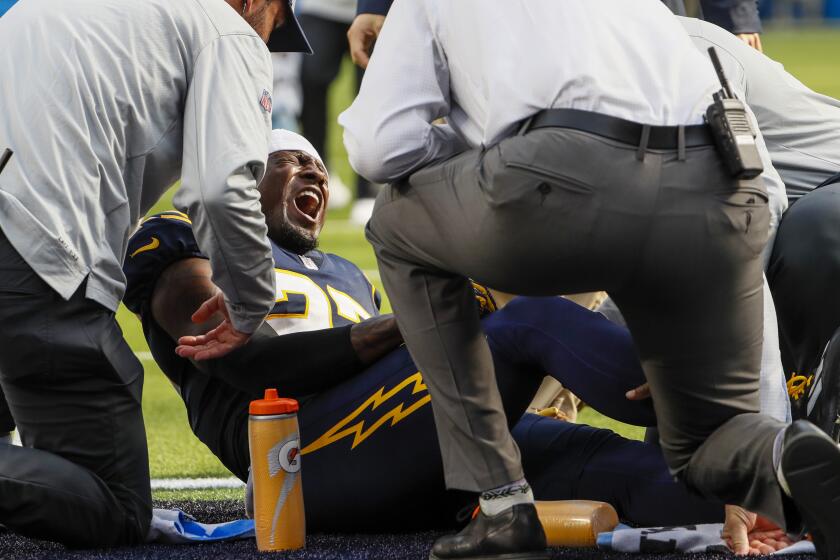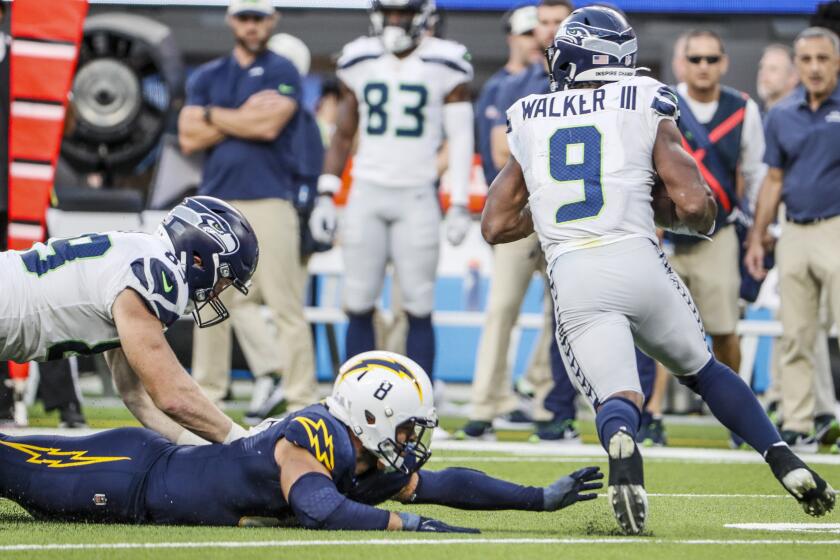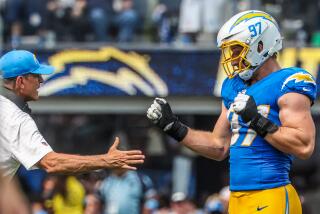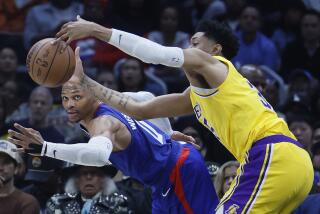Road to recovery for Chargers’ J.C. Jackson could be a long and difficult one
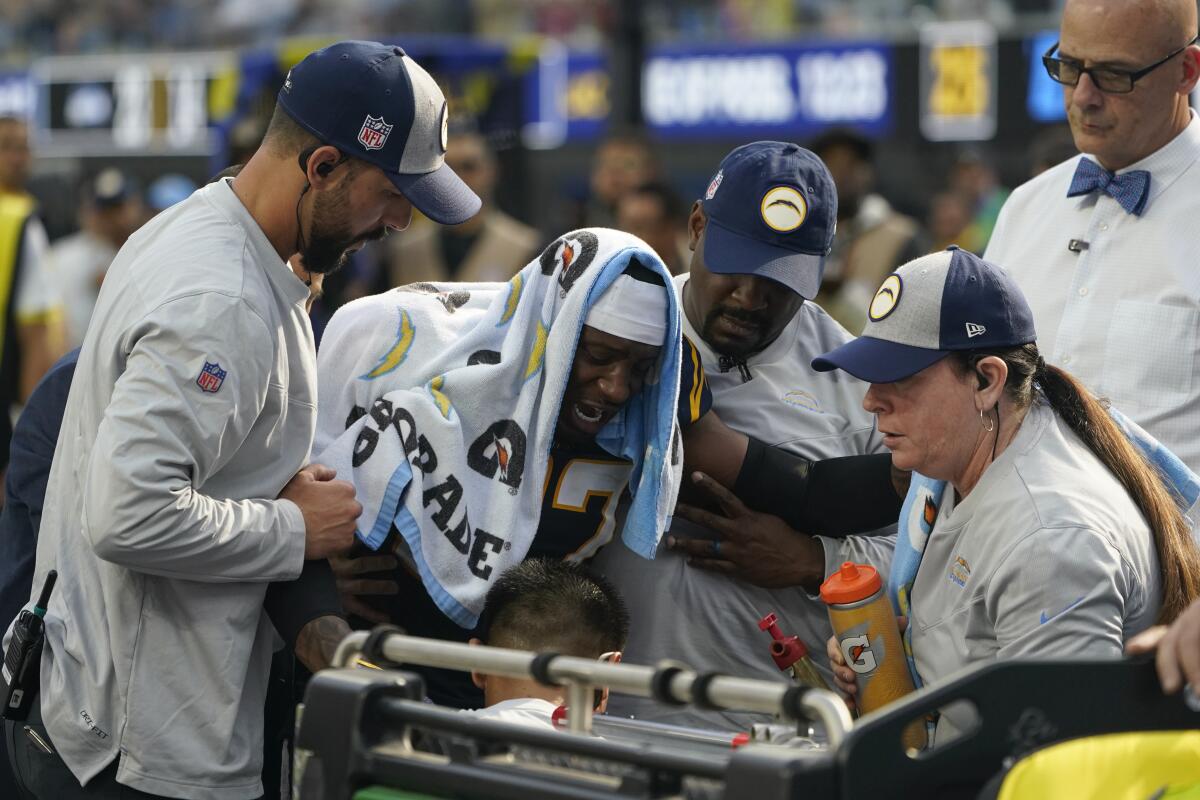
Chargers cornerback J.C. Jackson has faced difficult situations before, including criminal charges that cost him a scholarship at Florida and going undrafted out of Maryland in 2018.
He is up against more trying times now in his attempt to return from a ruptured patellar tendon suffered Sunday against Seattle.
“For his position, this is a tough injury,” said Timothy Gibson, an orthopedic surgeon at MemorialCare Orange Coast Medical Center. “It really is. This is going to take a lot of work.”
Jackson was injured late in the first half while defending a pass near the Chargers’ goal line. He fell to the SoFi Stadium turf and immediately grabbed his right knee while grimacing in pain.
On Monday afternoon, coach Brandon Staley announced the diagnoses, one that stacked the odds against Jackson returning to the Pro Bowl form he exhibited in 2021 while with New England.
A study published in June 2016 by the American Journal of Sports Medicine found that only 50% of players returned after having surgery on torn patellar tendons.
Chargers cornerback J.C. Jackson suffered a season-ending knee injury Sunday and wide receiver Mike Williams will be out weeks with a high-ankle sprain.
Of those who did make it back, most saw their careers cut short and their previous levels of performance go unmatched.
“On the spectrum of these kinds of injuries, it’s on the not-so-good side,” said Gibson, who spoke in general terms and is not treating Jackson. “There’s playing again and then there’s playing again at the same level.”
Though recovery times can vary based on severity, Gibson said a “full return” for a professional athlete typically takes six months to a year.
NFL players who suffered patellar tendon ruptures and never regained their previous form include wide receiver Victor Cruz and linebacker Jerod Mayo.
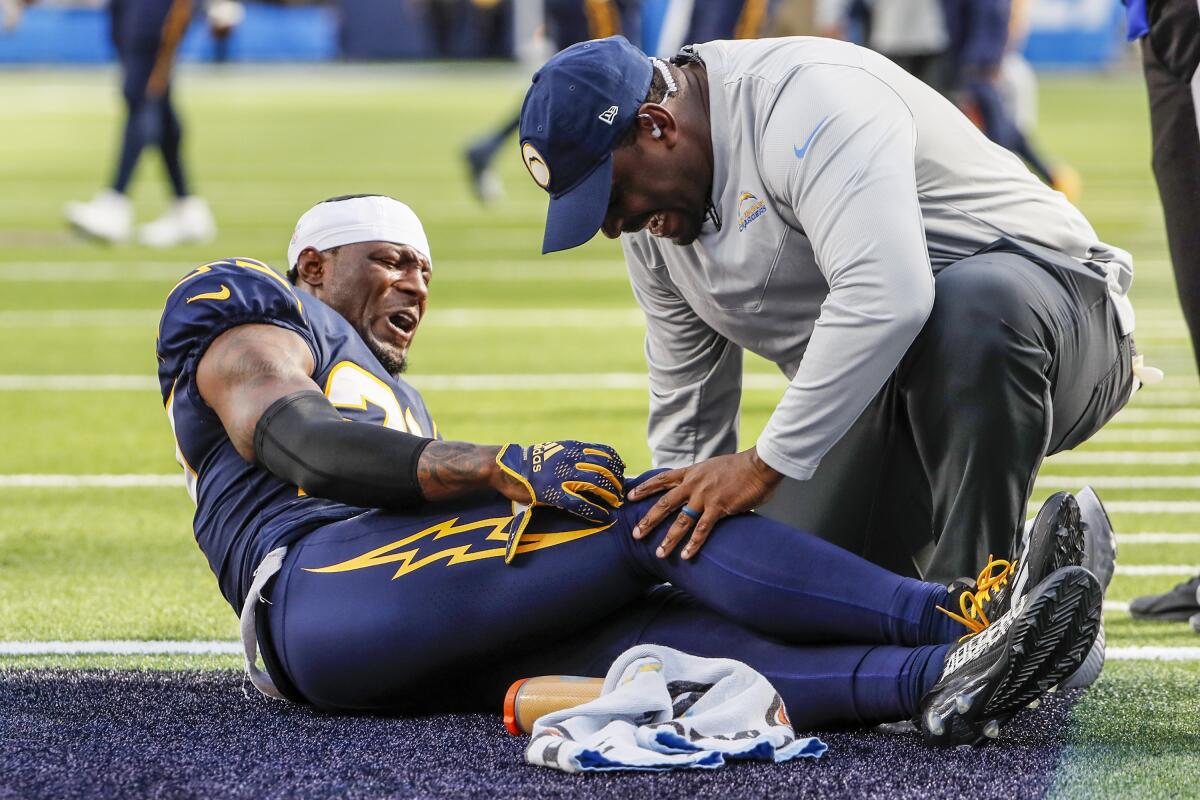
Tight end Jimmy Graham did make it back to become a Pro Bowl player again and cornerback Morris Claiborne returned to be a starter.
The immediate issues facing Jackson are surgery and rehabilitation, the timing of which, Gibson explained, is significant. The sooner Jackson has surgery and the stronger the fix, the quicker he can begin rehab.
This is vital, Gibson said, in attempting to limit the amount of atrophy to the quadriceps muscle, which is where a player like Jackson gains his power and explosiveness.
“You try to repair it early, for sure within the first week if not the first couple days,” Gibson said. “You want to get it healed early so you can rehab it early. The other key is to get it fixed strong.”
Chargers-Seahawks takeaways: L.A. spent the offseason restocking the defense, but it still looks as inconsistent as last season, something for coaches to ponder during the off week.
In March, the Chargers signed Jackson to a five-year contract that guarantees him $40 million and is worth up to $82.5 million. There is no guaranteed salary after the 2023 season.
Even with the daunting odds Jackson is facing, Gibson said it’s too early to count him out.
“I’ve learned to never doubt a professional athlete because they’re just different,” he said. “Their mindset, their ability to deal with it and focus on rehab, is just different than the rest of us.”
More to Read
Go beyond the scoreboard
Get the latest on L.A.'s teams in the daily Sports Report newsletter.
You may occasionally receive promotional content from the Los Angeles Times.

